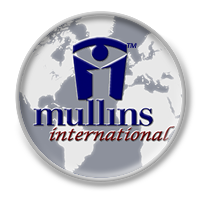Conseils international
The likelihood of success exporting products out of the United States increases when you engage the services of professionals with years of experience working with customers around the world. Mullins International can provide consulting advice based on 20 years of experience in product development adapting and marketing products to more than 150 countries.
Product Localization
Adapting products for local languages is a legal requirement in many countries. The translations must include labelling, user manuals, and software user interfaces. Most US companies may begin modifying products for a Spanish-speaking market. But which one? Castillian Spanish for Spaniards, Mexican Spanish, Colombian Spanish or Argentinian Spanish? Each of these dialects is very distinct from one another and customers in one country may not understand what you mean if the translation is based on the language spoken in another Spanish-speaking country. Or, if they understand, it would seem clear to the customer that the company cares little about local markets. . . not a good first impression.
Develop Uniform or Distinct Glossaries?
For products which companies sell to professional level customers, development of a single Glossary of Terminology requires establishing consensus among key customers, well respected within their individual markets. However, retail products targeting a consumer market may require separate Glossaries for each major market. The Spanish markets above are good examples, but for Arabic-speakers the dialect used in Egypt is quite satisfactory. Why? Because Egypt is the largest Arabic-speaking country and produces the most entertainment products, such as television dramas, movies and music for the whole region. Prioritizing the markets and planning which region to target first will enable you to approach each market from an informed position.
Product Naming
International marketing textbooks are full of examples of US companies which tried to sell products in foreign markets but the product name discouraged or even repulsed customers.
- Chevy "Nova": General Motors tried to sell its new car the "Nova" in Latin America but quickly realized why sales did not meet expectations. In Spanish, "no va" means, "won't go" or "won't run". Obviously new car buyers want a product that will run.
- Clairol "Mist Stick": a curling iron for women's hair was marketed under its American product name in Germany, but "mist" in German means "human excrement" which is not something you want to put in your hair.

